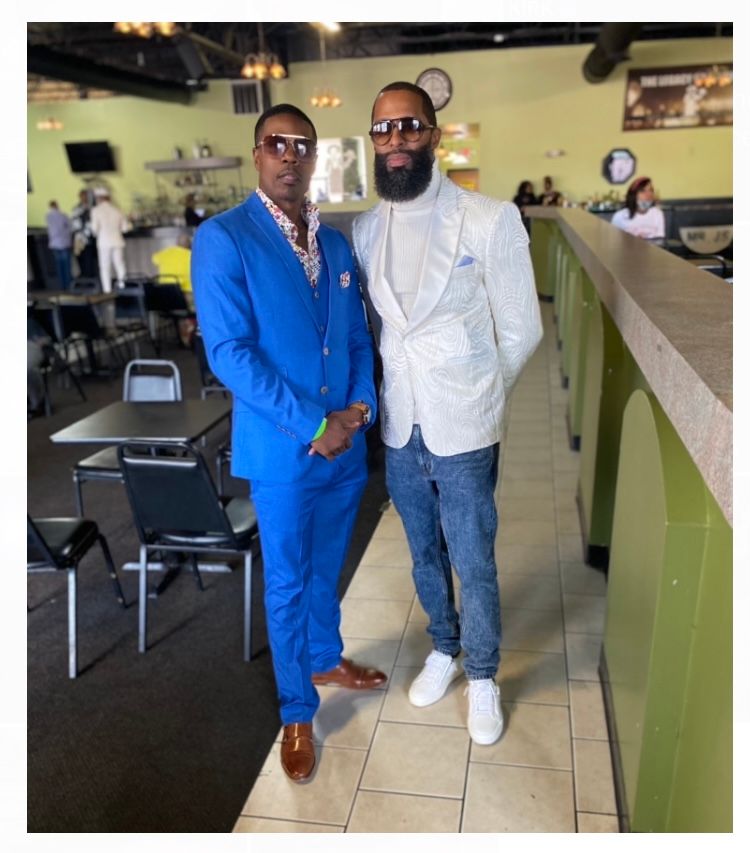MILWAUKEE— There was an alarming spike in homicides in Milwaukee last year. That pace has not slowed in 2021.
Driving the violence is poverty, lack of opportunity and the absence of hope.
According to a dashboard that tracks homicides in Milwaukee, through Nov. 1 of this year, a little more than 13% of victims were 17 and younger. Most fall into the 18-29 age range and are Black males.
Two men who lived this violent reality are now helping others find the courage to change.
Ed Hennings vividly remembers the day he decided to change his life. He was 24-years-old, handcuffed in the back of a police car.
“My hopes, my goals, my dreams, they’re talking to me saying ‘Man, you didn’t even really try for us. We would have been good together,'" he said.
Hennings was sentenced to 40 years for first degree reckless homicide. He served 20 and never lost sight of hope.
"That glimmer of hope that one day I might walk out of here. I held onto that because that’s all I had,” he said.
Having been out of prison for five years now, Hennings kept his promise to himself. He's a business owner, author, life coach and mentor.
His message to others is “This is your chance to be the Michael Jordan of your life. This is your chance to say, 'You know what, I can rise above it; I can do it.'"
Hennings is known as the "Comeback Coach."
That positive vibe is something Brandon Jordan picked up on when he first met Hennings in prison.
"A lot of people were 'hardened criminals.' When I looked at him I didn't see that," Jordan said.

Hennings helped Jordan solidify the choice he'd already made: To transform his life.
“Society will have you believe there’s only bad people in prison and not people who made mistakes," Jordan said.
The trouble started when Jordan was seven-years-old. His family moved to Milwaukee in the height of the cocaine era. His dad became addicted which led to divorce and Jordan being exposed to a different life.
“I saw things firsthand at a tender age that I shouldn’t have seen. I experienced things I shouldn’t have experienced. I did things I shouldn’t have done,” Jordan said.
At 15, Jordan said he was sentenced in the adult system. His longest stretch in prison was 12 years. He has served a total of 17.
After being released in 2016, Jordon also found a new path.
“I make sure whatever I do is purposeful. I try to help as many people as I can," he said.
Both men will tell you there was no hope in the Milwaukee neighborhoods where they grew up.
“It all starts with poverty; poverty is so violent," Hennings said.
Jordan saw some of his friends die young.
“We didn’t make many plans for the future because a lot of us didn’t see the future," Jordan said.
Hennings shared anything outside their community seemed like a fantasy.
“I told myself that so many times, that it became my reality," he said.
Arnitta Holliman is the director of Milwaukee's Office of Violence Prevention, or OVP. She told us it's important people understand violence is a disease. It's treatable and preventable.
Holliman pointed out trauma untreated can lead to violence. She believes the way back is to look at this through a public health, racial justice lens.
“If we aren’t addressing the root causes then we’re constantly responding to trauma or to violence in the community,” Holliman said.
Right now she said communities are stuck in a cycle where systematic issues in housing, education, employment and healthcare perpetuate and promote violence.
Holliman believes if people can learn violence they can also learn new, healthier ways of being.
When it comes to children, Holliman pointed out trauma that goes untreated can have lifelong consequences.
Right now many of OVP's efforts follow a community-driven, prevention-focused approach.
“We make sure people have what they need, they know they can get it, they know where to find it and they have reliable systems of support that they can trust," Holliman said.
Trauma therapist, Simmone Stovall, wants society to change the way it thinks about violence.
“It’s not us or them. It’s all of us," she said. "If we don’t get a handle on it and understand it as if it was us then we’re going to continue to move in this way.”
Stovall said healing is essential to stop the spread of violence. She works with survivors through Aurora Healing and Advocacy Services and also does community work through OVP.
Stovall told us she knows people can heal because she's seen it. She believes organizations are doing what they can but said the effort needs more money and more bodies.
She wants everyone to have the opportunity to live in a safe and stable environment.
“We hear things like nobody really cares ... this environment has been like this for so long. We don’t believe that it will change," Stovall said.
Jordan is able to reach the younger demographic first with his music and then with his experiences. His advice to those struggling is to "just take that first step. Sometimes it’s the most daunting and the most difficult. It’s never impossible."
Above all else, Jordan said he and Hennings live by example, every day.
OVP is working to make Milwaukee a healing-centered city. There's an effort to have healing hubs accessible to neighbors in areas with the highest rates of violence.
OVP also wants to help train influencers in those areas to create peace and maintain it.



